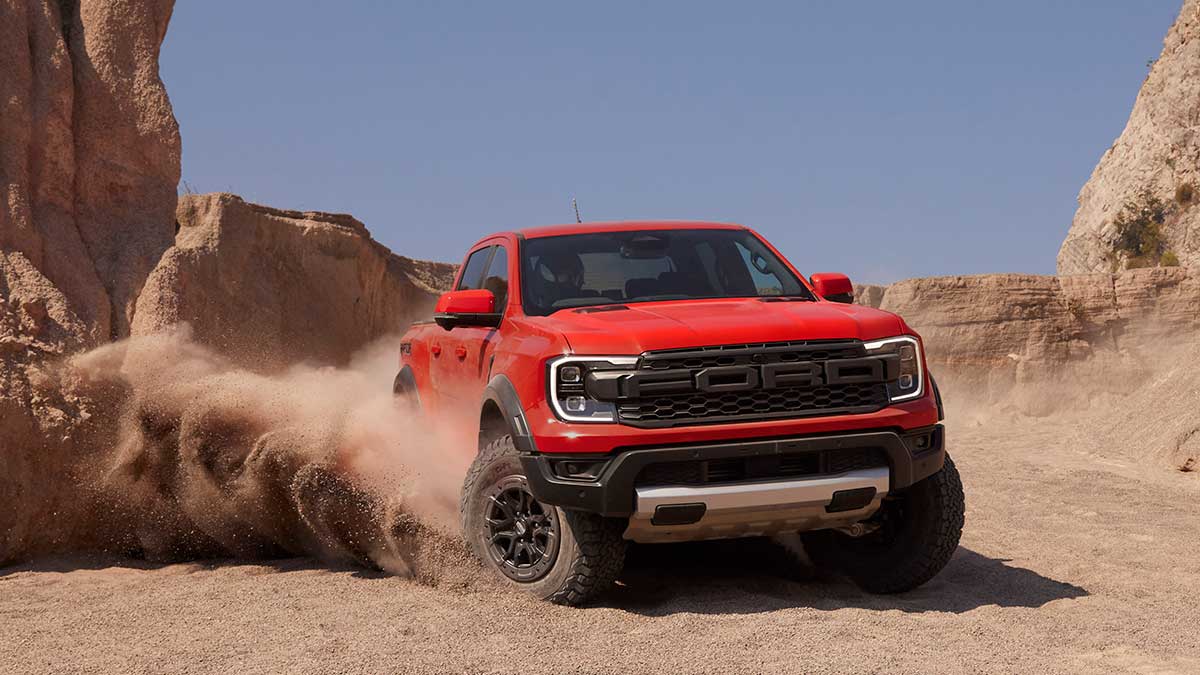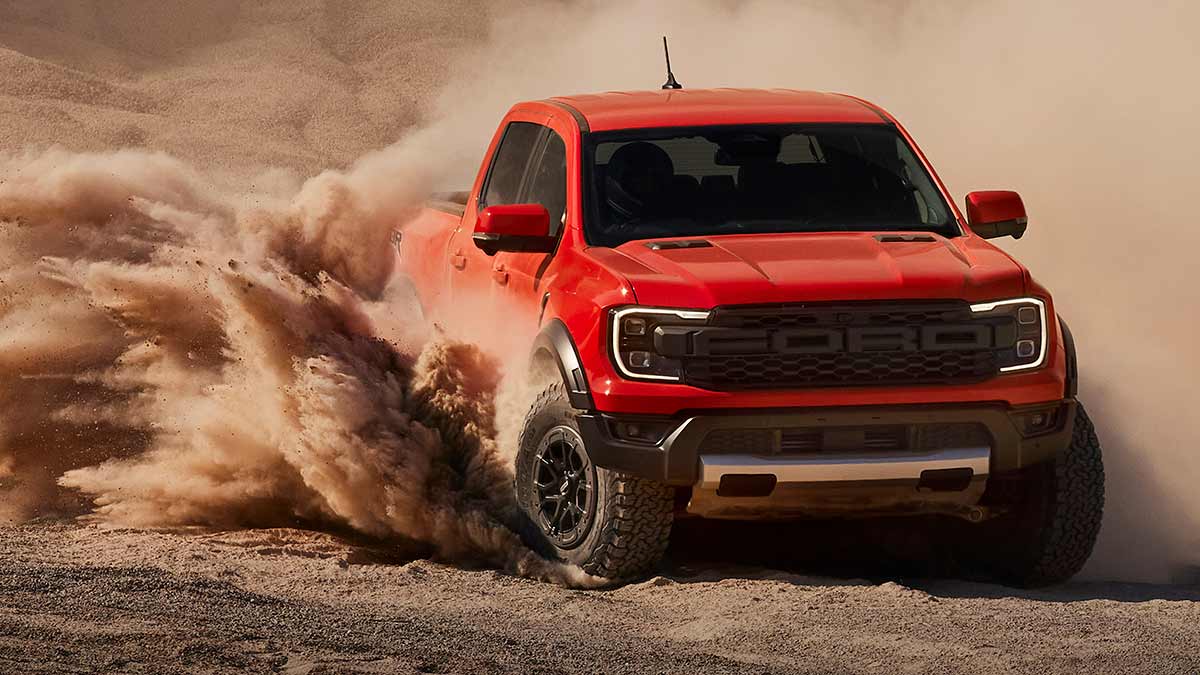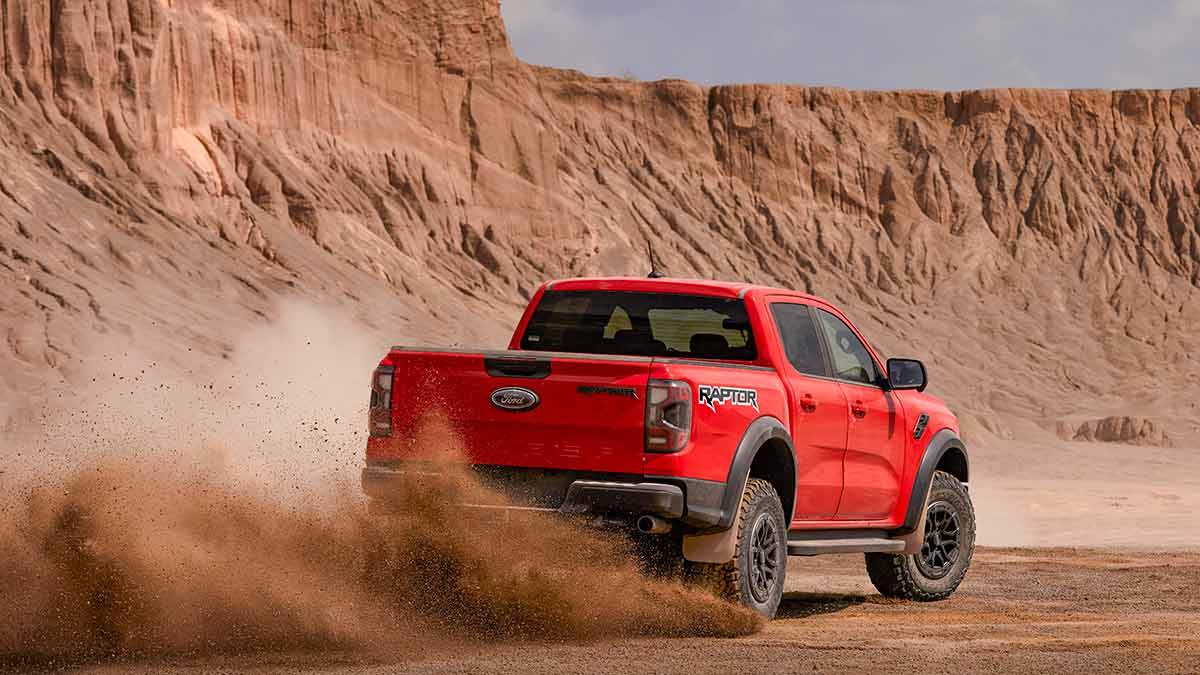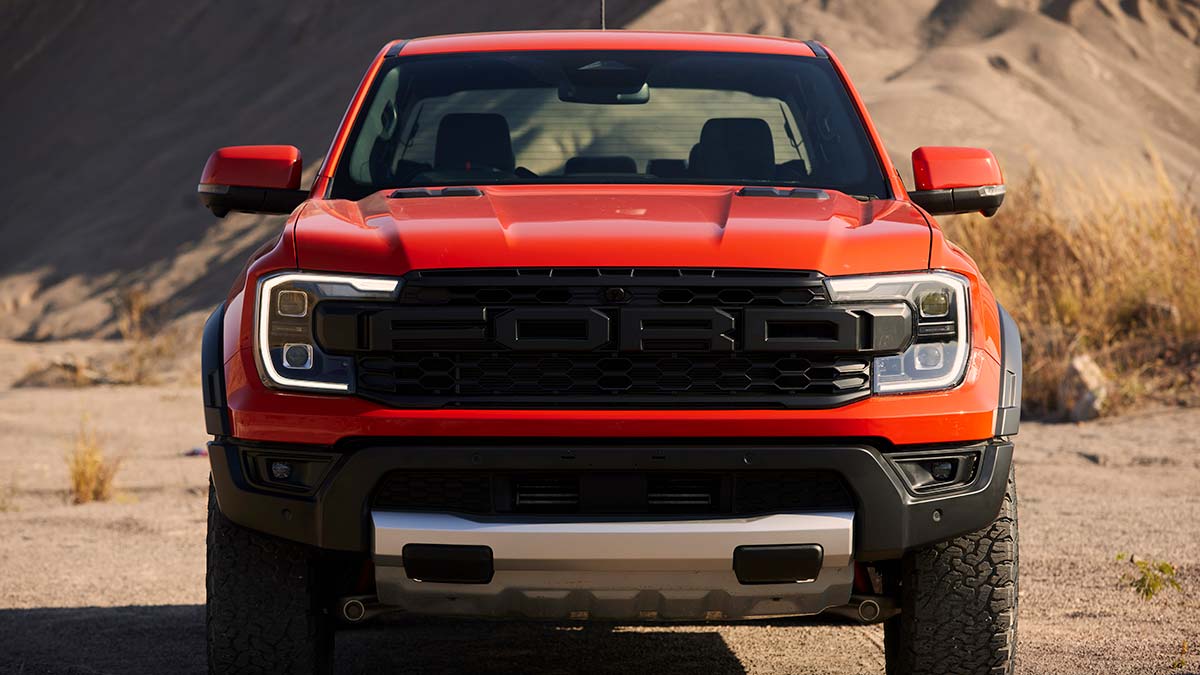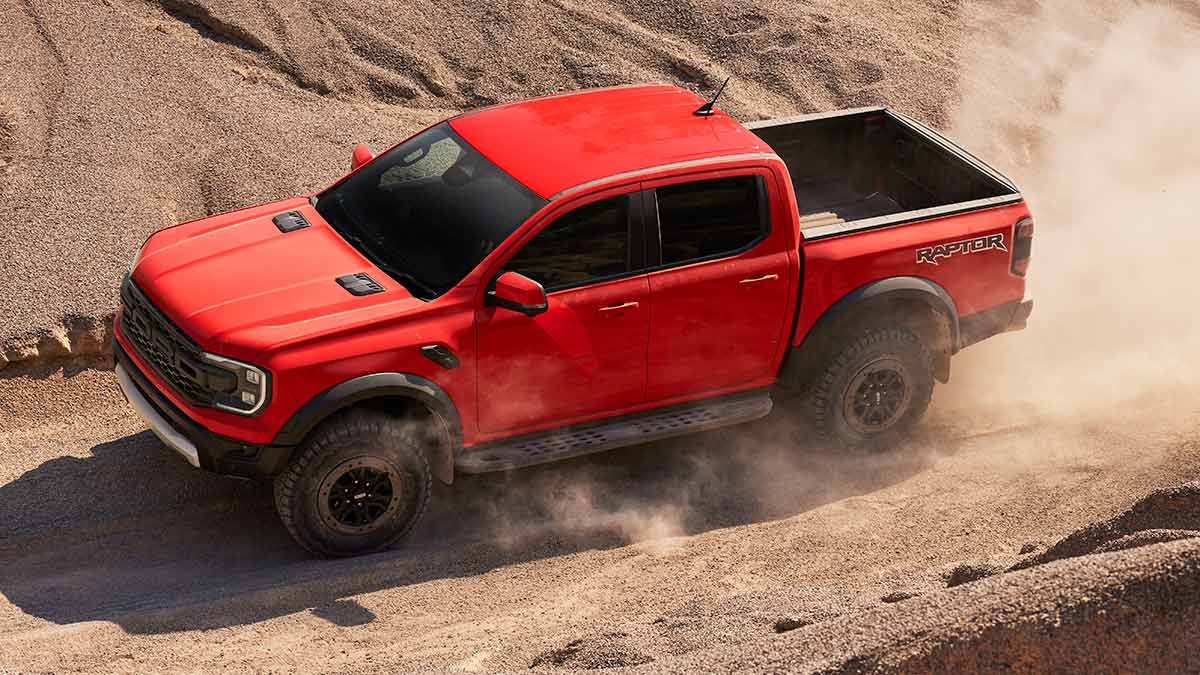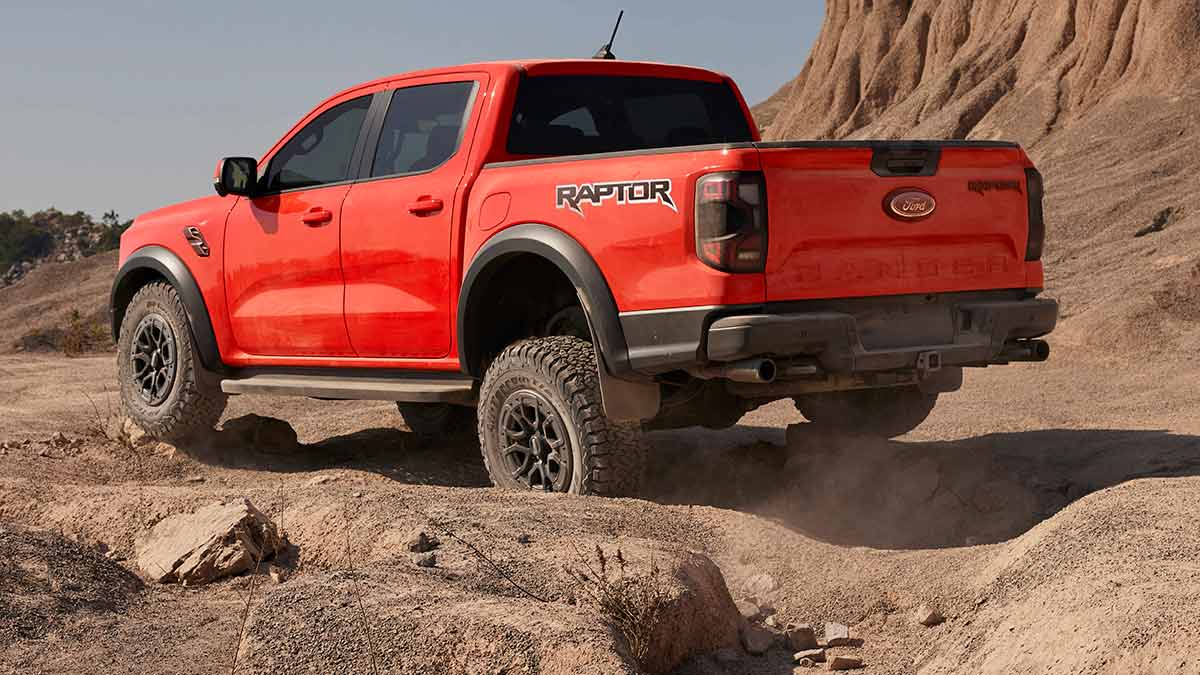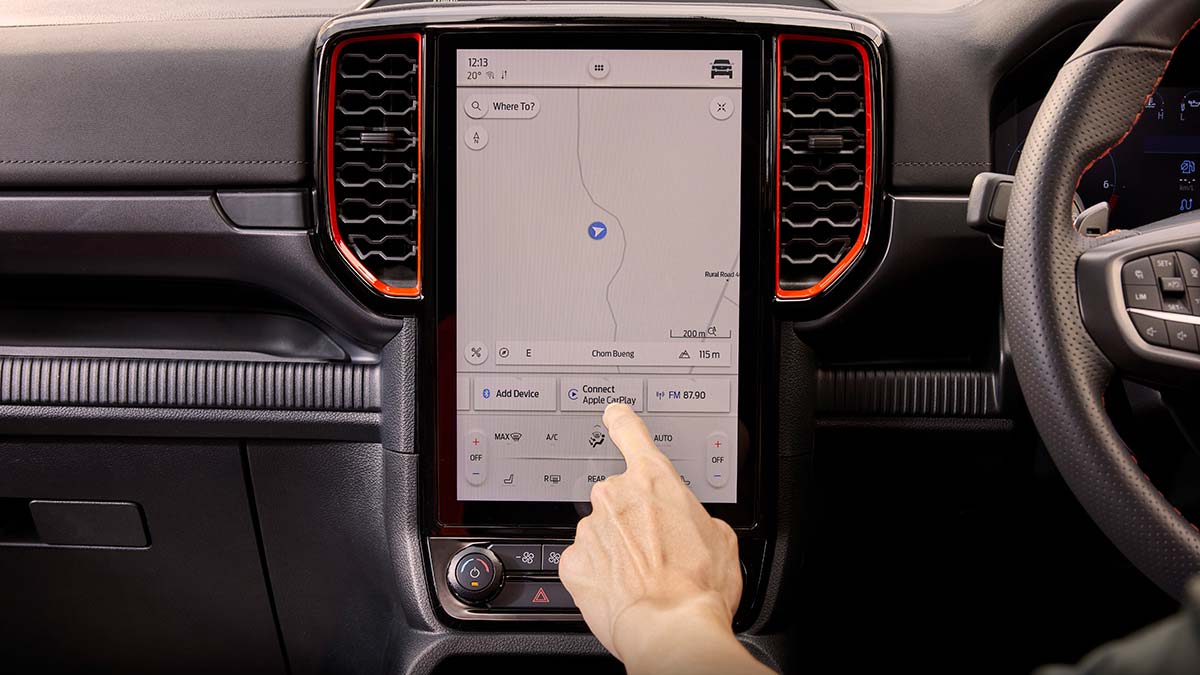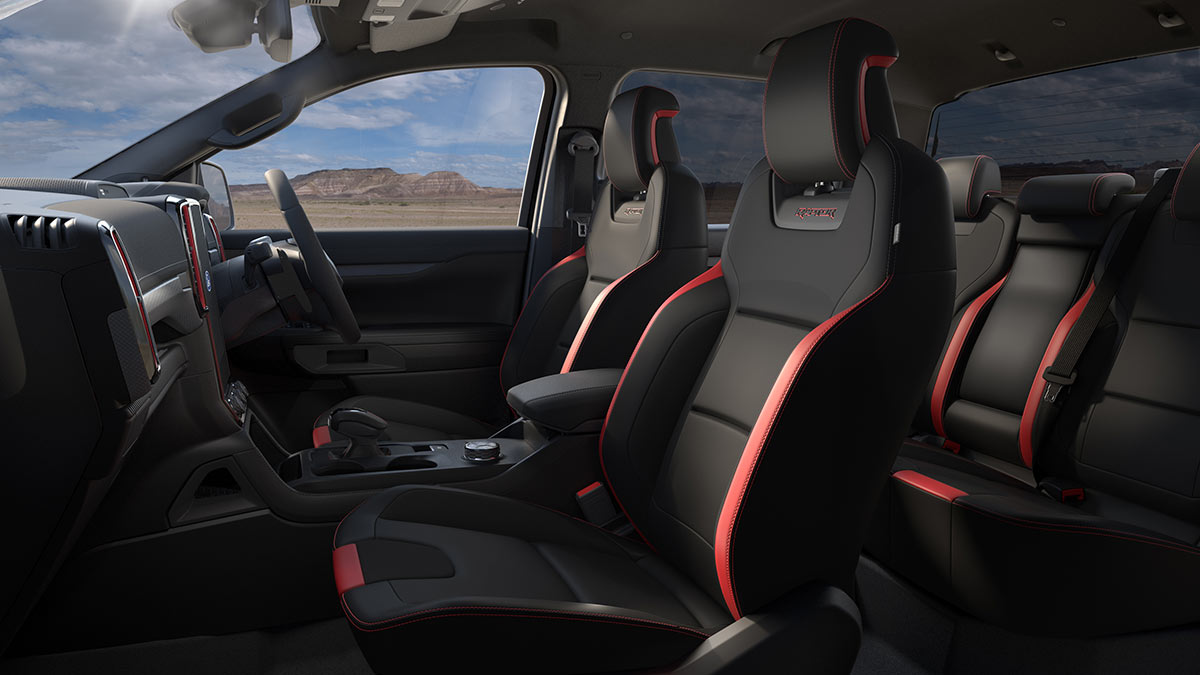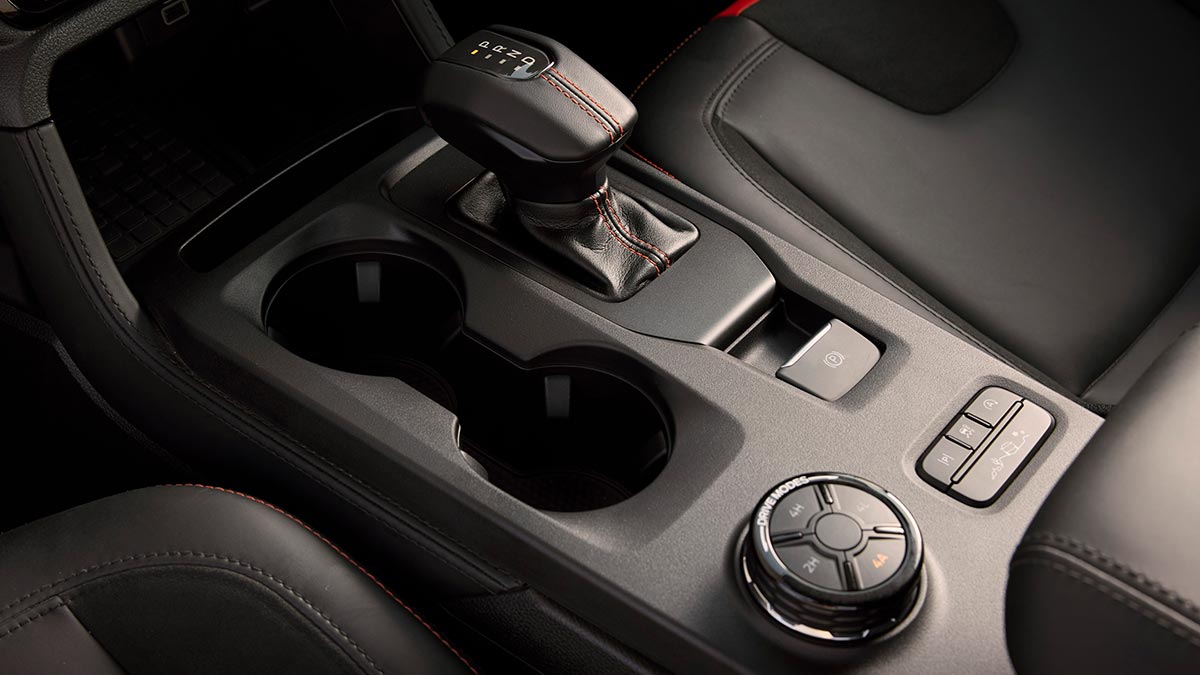The ninth-generation Toyota HiLux has arrived, bringing with it a futuristic forward exterior design, more safety and tech and the same rugged capability owners love. Will the updates tempt private buyers away from the Ford Ranger or are they just enough to keep fleets onside?
2022 Ford Ranger Raptor revealed

Thought the existing Ford Ranger Raptor was a good thing? The upcoming four-door ute lifts the performance game to an insane new level, mixing on-road performance with class-defining off-road ability.
Ford hasn’t lifted its game with the upcoming Ranger Raptor, it has lifted to a new league.
The headline act is a 3.0-litre twin-turbo V6 engine that delivers almost double the power and a heap more torque than its already capable diesel-powered predecessor.
Couple that with a much more car-like interior, improved suspension and a four-wheel-drive system than can now power all four wheels at speed on bitumen and you’re looking at the most capable off-road ute in the country.
That said, it's likely to be accordingly more expensive than the existing Raptor, which cost around $85,000 on the road.
Here’s what we know to date:
Petrol powertrain
Ford has endowed the upcoming Ranger Raptor with a petrol 3.0-litre twin-turbo V6 engine churning out 292kW and 583Nm of torque. The current model uses a 2.0-litre four-cylinder turbodiesel with 157kW and 500Nm, meaning power has nearly doubled, while there’s another 83Nm of torque on tap.
The engine uses a graphite-iron cylinder block, which Ford states to be 75 per cent stronger than a traditional cast-iron unit.
Ford’s performance chief program engineer for the Raptor, Dave Burn, says the Blue Oval focused on delivering a genuine performance vehicle.
“It’s significantly faster, looks incredible, is packed with new features, and is the strongest Built Ford Tough Ranger we’ve ever made,” he says.
“The 3.0-litre brings a different dynamic to the Ranger Raptor that will satisfy even the most hardcore performance enthusiast.
“The acceleration and raw performance of the new powertrain leaves you grinning from ear-to-ear.”
The engine is paired with Ford’s 10-speed automatic transmission and there’s an active valve exhaust which can elicit four distinct tones: quiet, normal, sport and Baja, with the latter intended for off-road use only.
Suspension upgrades
Race-proven Fox Live Valve Internal Bypass shock absorbers have been locally tuned to keep the Raptor’s wheels in contact with terra firma, or to soak up the impact when the four-door ute gets airborne.
The 2.5-inch units are said to be the most sophisticated dampers ever bolted onto a Ranger and use Teflon-infused oil to cut friction by around 50 per cent compared to the current Raptor.
A position-sensitive damping capability has let the Ford engineers set the loads according to what the Raptor is doing. As the shocks compress, different zones within the bypass system provide a pre-set degree of support according to the suspension travel. To stop severe bottom-outs in high-speed off-road conditions, the Fox dampers provide maximum resistance in the last 25 per cent of shock travel.
The chassis has also been overhauled to handle the extreme conditions the Raptor can cope with.
There are unique frames for the shock tower and rear shock bracket, along with reinforced sections in the C-pillar, load-box and spare wheel mount.
Underbody protection has also been improved, with a 2.3mm steel front bash plate, along with shields under the engine and transfer case.
There are also a pair of tow-rated recovery hooks on the front and back, ensuring owners can recover their Raptors no matter which side or end they’ve buried.
Seven drive modes
An advanced permanent four-wheel-drive system is new for the Raptor and enables owners to drive on the bitumen with all four wheels providing traction.
Dave Burn says the set-up makes the Raptor a “capable overlanding vehicle” despite its focus as a desert racer.
“Out of the box we’ve created an off-road vehicle that you don’t need to modify to get you where you need to go and back again safely,” Burn says.
There are now seven drive modes to choose from, with three aimed at on-road operation and four for off-road applications. Each setting adjusts the response of the engine, transmission anti-lock braking sensitivity, stability controls, suspension, exhaust valve setting, steering and throttle response
Bitumen modes:
- Normal – designed for comfort and fuel efficiency.
- Sport – more responsive for “spirited” on-road driving
- Slippery – for more confident driving on slippery surfaces.
Off-road settings:
- Rock Crawl – optimises traction on loose surfaces.
- Sand – for use in soft sand and deep snow conditions.
- Mud/Ruts – for maximum grip off-road during launch and maintaining vehicle momentum.
- Baja – tuned for high-speed off-road performance with all systems set for maximum attack.
The new Ranger Raptor also boasts Trail Control, which Ford describes as “cruise control for off-roading”. The system operates at speeds below 32km/h and manages acceleration and braking as the driver concentrates on steering through difficult terrain.
USA-inspired design
The new Raptor adopts the front-end styling of its big brother, the F150 truck sold in the USA. That’s not a bad thing, given the F-Series were the top-selling vehicles in the United States last year.
The FORD lettering now stretches across the grille and there’s the signature C-clamp headlamp design.
Flared wheel arches highlight the width of the four-door ute and can accommodate two standard 17-inch wheel designs, with the optional one having beadlock capability.
LED headlamps and taillights provide illumination and Ford says the lighting performance is on a new level, with auto levelling and speed-dependent lighting, which adjusts the intensity of the light beam projecting out from the headlamps depending on the Raptor’s velocity.
Inside, there’s a 12-inch infotainment touchscreen with wireless smartphone connectivity, a Bang & Olufsen sound system, wireless phone charging pad, a 12.4-inch digital driver’s display and new seats front and rear that Ford says are “not only more comfortable but also more supportive during spirited cornering”.
The information provided is general advice only. Before making any decisions please consider your own circumstances and the Product Disclosure Statement and Target Market Determinations. For copies, visit racv.com.au. As distributor, RACV Insurance Services Pty Ltd AFS Licence No. 230039 receives commission for each policy sold or renewed. Product issued by Insurance Manufacturers of Australia Pty Ltd ABN 93 004 208 084 AFS Licence No. 227678.
The information provided is general advice only. Before making any decisions please consider your own circumstances and the Product Disclosure Statement and Target Market Determinations. For copies, visit racv.com.au. As distributor, RACV Insurance Services Pty Ltd AFS Licence No. 230039 receives commission for each policy sold or renewed. Product issued by Insurance Manufacturers of Australia Pty Ltd ABN 93 004 208 084 AFS Licence No. 227678.
